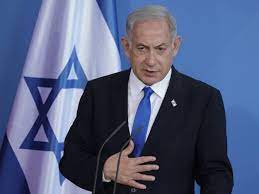Cuba hosts the first G77+China Summit in search of a new global economic order
Friday’s G77+China summit in Cuba aims to advance a “new economic world order” despite fears of escalating division. The G77+China is an alliance of developing and rising nations that together make up 80% of the world’s population.
Around 30 leaders of state and government from Africa, Asia, and Latin America will attend the two-day conference in Havana, including United Nations chief Antonio Guterres, who landed on the island Thursday.
The statement that will be released after the meeting on Saturday would emphasize “the right to development in an increasingly exclusive, unfair, unjust, and plundering international order,” said Bruno Rodriguez, Cuba’s foreign minister, telling reporters on Wednesday.
Drafts of the concluding remarks highlight the many challenges that face developing countries and contain “a call for the establishment of a new economic world order,” the speaker added.
According to the group’s website, 77 nations from the global South founded the bloc in 1964 “to articulate and promote their collective economic interests and enhance their joint negotiating capacity.”
Currently, there are 134 members, and the website shows China as one among them even though the Asian juggernaut claims it is not a full member.
In January, Cuba assumed the rotational presidency.
Along with Cuban President Miguel Diaz-Canel, who will offer the opening remarks, Guterres has recently participated in a flurry of global summits, including a meeting of the BRICS group, which also includes Russia, and the G20 club of big countries in India.
Guterres said before the Havana summit that “this multiplicity of summits reflects the growing multipolarity of our world.”
He further cautioned that “multipolarity could be a factor for escalating geostrategic tensions, with tragic consequences.”
On X, previously Twitter, Diaz-Canel promised that the Cuban delegation will “reaffirm our commitment to multilateralism, cooperation, and development.”
An acceptable interlocutors
Brazil’s Luiz Inacio Lula da Silva, Colombia’s Gustavo Petro, and Argentina’s Alberto Fernandez are all slated to attend.
Li Xi, a senior Communist Party official, will speak on behalf of China.
Even as Cuba struggles with its greatest economic crisis in 30 years, the presence of foreign leaders on its land amounts to “a recognition for the Cuban government,” one expert told AFP.
Despite the current challenges, Cuba has been acknowledged as a legitimate interlocutor, according to Arturo Lopez-Levy, a visiting professor from Cuba at the Autonomous University of Madrid.
US sanctions on the communist-run island are still in effect today, having been put in place in 1962.
In recent months, Diaz-Canel has represented the G77+China in a number of international gatherings, such as the June Paris World Financial Summit and the July EU conference with countries from Latin America and the Caribbean.
The importance of “science, technology, and innovation” in development is the focus of the Havana summit.
Guterres added, “I will focus on getting the 2030 Agenda back on track,” referring to a set of UN objectives to stop, among other things, climate change and end poverty and hunger.







